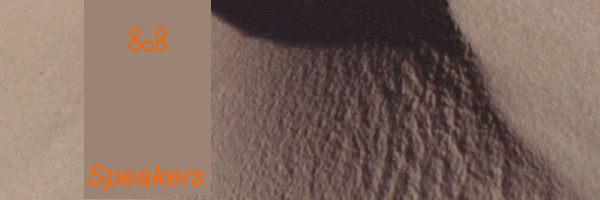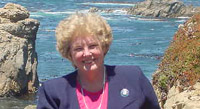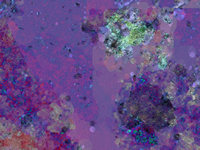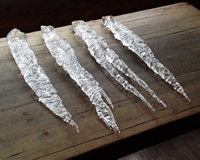
* A complete advanced programme is now online * Invited Speakers are listed below *
N.
Katherine Hayles
Professor of
English and Design/Media Arts, University of California Los Angeles
(UCLA), USA.
N. Katherine Hayles is Professor of English and Design/Media Arts at the University of California Los Angeles. She teaches and writes on the relations between literature, science and technology in the twentieth and twenty-first century. Her latest book, "How We Became Posthuman: Virtual Bodies in Cybernetics, Literature and Informatics," won the Rene Wellek Prize for the Best Book in Literary Theory for 1998-99 as well as the Eaton Award for the best book in science fiction theory and criticism.

Driessens/Verstappen
Amsterdam, Netherlands
Dutch artists Erwin Driessens and Maria Verstappen are known for their generative works in fields ranging from organic sculpture to virtual architecture and installation art.
"We see a challenge in the question "How can we express the longing for an activity that explores the unseen, the unthought and the unknown?" Not influenced by taste, style and meaning but also avoiding complete arbitrariness.
In this context, we are interested in dynamic processes: each change in a process is a reaction to the previous change, so it is really matter of feedback. On the one hand, this creates cohesion, on the other hand the system remains unpredictable as a result of coincidences. Small changes can sometimes lead to dramatic transformations. "
"Although it is true that the specific capabilities of a computer cannot imitate human thought processes, they do create the possibility of providing the computer with an autonomous, superhuman way of thinking that is interesting because it generates unforeseen results. We are therefore not interested in imitating human behaviour, but instead wish to implement processes that make use of these specific capabilities in such a way that artificial life systems (those designed to display emergent spontaneous behaviour) are created."
Please consult the NotNot webpage for further information about the artists.



Christa Sommerer
ATR MIC lab, Kyoto, Japan
International Academy of Media Arts and Sciences, Gifu, Japan
MIT Center for Advanced Visual Studies, Boston, USA
Christa Sommerer and Laurent Mignonneau have been a prolific collaborative team in new-media installation art since the early 1990's. Their work explores the Science/Art divide, applying electronic biology and Artificial Life techniques to the production of interactive art. Since being awarded the "Golden Nica" Ars Electronica Award for Interactive Art in 1994 at Linz, Austria, they have received several other major international prizes for electronic media art. Christa and Laurent's works have secured permanent exhibition at high-profile galleries around the world, and inclusion in the programmes of numerous festivals and symposia.
As well as various technical and critical papers, Christa and Laurent co-edited "Art@Science", a book which discusses the links between new-media art and artists, science, technology and research (available through Springer-Verlag).
Further Second Iteration : speakers will be listed shortly.
Markus Popp / Oval
Berlin, Germany
(30th Oct 2001) For reasons known only to himself, Markus Popp has decided not to honour his commitment to participate in Second Iteration : emergence. Second Iteration apologizes for any inconvenience this may have caused.




